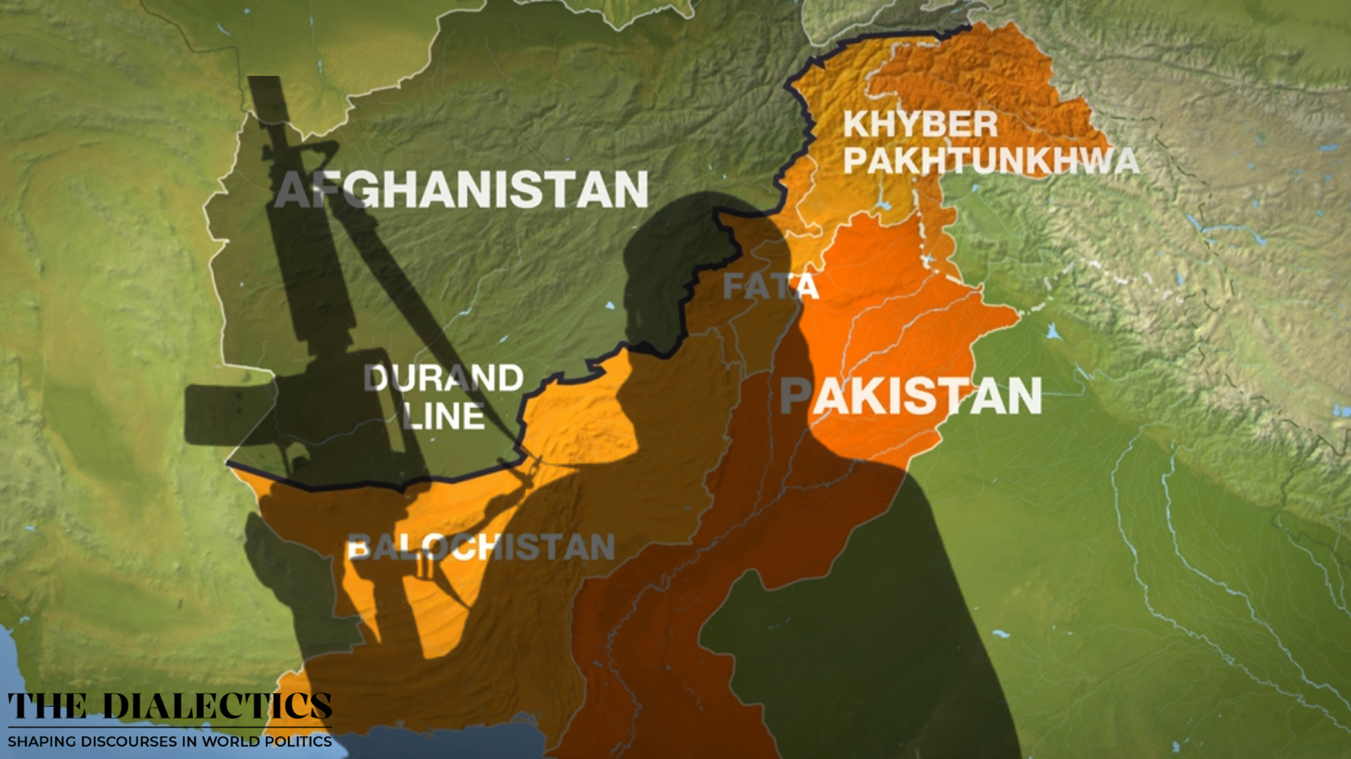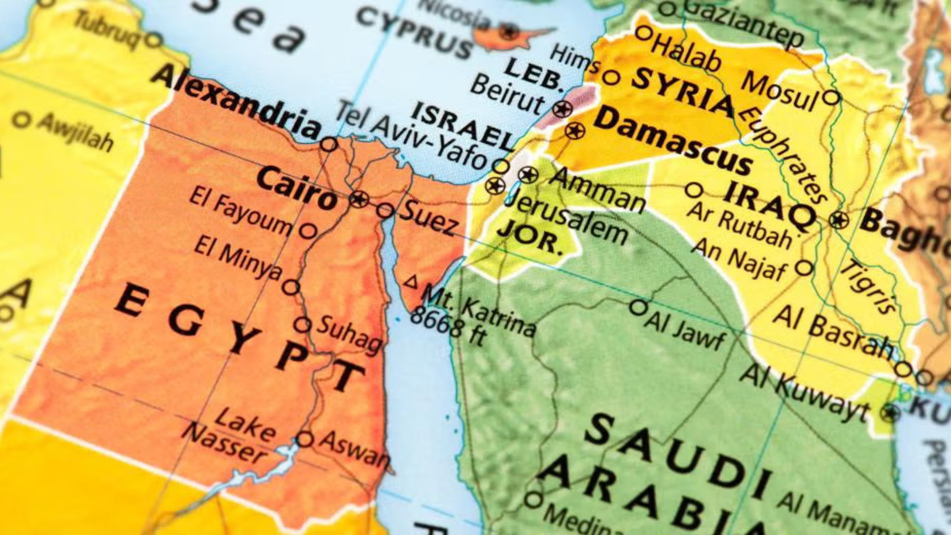Introduction
Pakistan-Afghanistan relations have long been shaped by historical tensions, security concerns, and geopolitical objectives. However, in recent years, terrorism has emerged as a major disruptive factor in bilateral relations. Multiple terrorist organizations, including Tehrik-i-Taliban Pakistan (TTP) and the Islamic State Khorasan Province (ISKP), have taken advantage of regional instability, causing diplomatic divisions, cross-border violence, and internal security challenges. While both Islamabad and Kabul have undertaken efforts to address these challenges, their approaches remain divergent, Complicating diplomatic interactions.
This paper examines the role of terrorism in determining Pakistan-Afghanistan relations, focusing on the effects of militant groups, governmental responses, and international perspectives. It draws upon recent studies by global organizations, including the United Nations Security Council (UNSC), the Center for Strategic and International Studies (CSIS), and the National Bureau of Asian Research (NBR), to provide an in-depth analysis of the evolving security landscape.
The Role of Terror Outfits in Bilateral Relations
The activities of terrorist groups, particularly the TTP and ISKP, have played a major role in defining Pakistan-Afghanistan relations. These groups have exploited the porous border regions, launching attacks and undermining security efforts on both sides.
The TTP, which has been a persistent threat to Pakistan, found refuge in Afghanistan after the Taliban takeover in 2021. Reports from NBR (2024) indicate that the TTP conducted over 170 attacks in Pakistan in 2024 alone, mainly targeting security forces in Khyber Pakhtunkhwa and Balochistan. This has escalated tensions between the two nations, with Pakistan accusing the Afghan Taliban of providing sanctuary to the TTP. In response, the Taliban has repeatedly denied these allegations, stating that it does not support militant activities against Pakistan. The lack of consensus on how to address the TTP issue has resulted in a diplomatic deadlock, with Islamabad resorting to airstrikes in Afghan territories suspected of harboring militants.
The TTP, led by Noor Wali Mehsud, is a coalition of militant groups that seeks to establish an Islamic state in Pakistan governed by their interpretation of Sharia law. Since its formation in December 2007, the TTP has been responsible for thousands of attacks against Pakistani security forces and civilians. One of its most notorious incidents was the December 2014 Peshawar Army Public School massacre, which killed over 140 children and teachers. Under Noor Wali Mehsud’s leadership, the TTP has undergone a resurgence, particularly after the Afghan Taliban’s takeover of Afghanistan in August 2021. It has increasingly operated from Afghanistan, utilizing the country as a base for cross-border attacks into Pakistan. A United Nations report from July 2024 confirmed that the Afghan Taliban does not consider the TTP a terrorist group. Instead, the two share ideological and strategic bonds, with the Taliban providing significant support to the TTP. The report also noted that the TTP may have up to 6,500 fighters, bolstered by backing from the Islamic Emirate of Afghanistan.
ISKP presents an additional security challenge, as it operates against both the Afghan Taliban and Pakistan. ISKP, formally established in 2015 as a regional affiliate of the global Islamic State (IS) group, follows a radical Salafi-jihadist ideology and aims to establish a global caliphate rather than focusing on a localized insurgency. Unlike the Taliban, which seeks control within Afghanistan, ISKP has a broader agenda of global jihad, engaging in high-profile terrorist attacks targeting civilians, religious minorities, and foreign diplomats.
According to CSIS (2024), ISKP has expanded its operational capabilities, conducting mass-casualty attacks in Afghanistan and Pakistan. The Taliban, despite its efforts to neutralize ISKP, has struggled to effectively contain the group due to internal factionalism and resource constraints. Pakistan remains concerned about ISKP’s growing influence, particularly its ability to radicalize and recruit militants within Pakistani territory. Furthermore, ISKP’s self-sufficiency in funding through illicit activities, including extortion, drug trafficking, and smuggling, makes it a formidable transnational threat. These developments highlight the transnational nature of terrorism in the region and its role in exacerbating tensions between the two countries.
Additionally, Baloch separatist groups have further complicated regional security. Pakistan has accused Afghanistan of providing safe havens to Baloch militants, particularly the Balochistan Liberation Army (BLA). The Afghan government, however, denies any direct involvement. The presence of these groups has led to increased cross-border clashes, making it even more difficult for Islamabad and Kabul to establish trust-based diplomatic relations.
Governmental Responses and Counterterrorism Strategies
Both Pakistan and Afghanistan have implemented counterterrorism measures to combat the rising security challenges, although with differing strategies and priorities. Pakistan has pursued a military-led approach, while the Taliban has faced internal issues in controlling the security situation.
Pakistan has launched several military operations aimed at neutralising terrorist networks. One such operation was the December 2024 airstrikes in Afghanistan’s Paktika province, which targeted suspected TTP hideouts. While these measures have hampered militant activities, they have also strained diplomatic ties with Kabul. Additionally, Pakistan has accelerated the construction of the Durand Line border fence and stationed additional security forces to prevent cross-border infiltrations. Despite these efforts, Pakistan continues to suffer from terrorist attacks, demonstrating the resilience of militant groups.
Afghanistan’s Taliban-led government has priortized on eliminating ISKP while maintaining a complicated stance on the TTP. While the Taliban has conducted counterinsurgency operations against ISKP, its outcome has been limited due to Political fragmentation and institution weakness. The Taliban’s unwillingness to take strong action against the TTP, however, has raised mistrust within Pakistan’s government. In addition, Afghanistan has sought deeper ties with China, Russia, and Iran in the light of Pakistan’s diplomatic pressure, indicating a shift in regional alliances.
Conclusion and Policy Recommendations
Terrorism continues to be a defining factor in Pakistan-Afghanistan relations, exacerbating diplomatic tensions and jeopardizing regional stability. The activities of militant groups such as the TTP, ISKP, and Baloch separatists have led to a security dilemma, with both governments adopting different counterterrorism strategies. Despite their exclusive efforts against terrorism, a sustainable resolution remains elusive.
To mitigate the security crisis and improve bilateral relations, Pakistan and Afghanistan should focus on strengthening intelligence cooperation through a formal intelligence-sharing mechanism to enhance counterterrorism efforts and prevent cross-border attacks. Engaging regional stakeholders, including China, Iran, and Russia, in diplomatic dialogue could foster collaborative counterterrorism measures. Additionally, both governments must adopt a more humane approach to security operations and refugee repatriation to protect civilian lives. International and regional organizations, such as the United Nations and the Shanghai Cooperation Organization (SCO), should also play a role in facilitating diplomatic discussions to address terrorism. Without a long-term and sustainable counterterrorism framework, lasting stability and peace in the region will remain unattainable.




